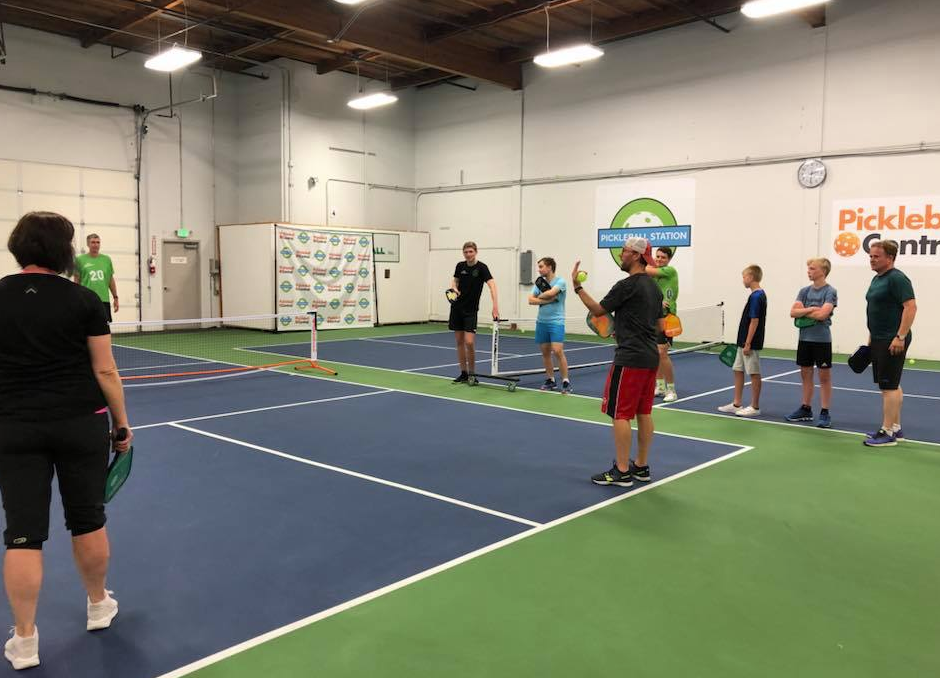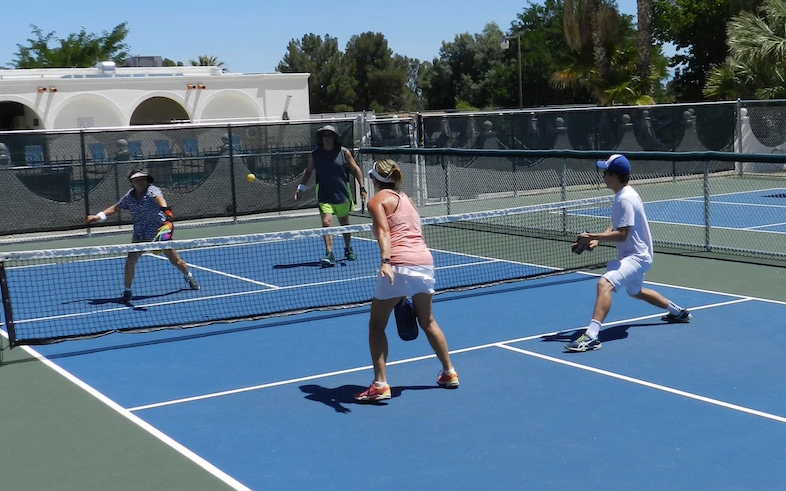The debate is one that's been raging in the sport for years: Should high level picklers 'play down' with other members of their club?
The simplest answer is, 'If they want to,' but with a bit of digging many different opinions come to light. Some feel that 'open' play is just that, and believe it should be an opportunity to play the game and have fun heedless of skill divides. With this mindset, open play is an opportunity for picklers to mix things up rather than always sticking to their own.
Some clubs or communities have open play scheduled for a set period of time followed by rank-specific games at others. This allows high level players to choose whether they want to mingle among the intermediate crowd or stay with their peers, largely eliminating the feeling that they're being 'forced' to play with those outside their bracket. Unfortunately there aren't always enough players or court availability to make this happen, which can lead to both parties feeling wronged.
 An easy way to learn from the pros without taking time away from their open play is to invest in a class, like ours at Pickleball Station!
An easy way to learn from the pros without taking time away from their open play is to invest in a class, like ours at Pickleball Station!
The best way to handle this situation uses qualities popular across the sport: respect and communication. It helps newer players feel included when pros generously take the time to play down, but they also shouldn't be expected to constantly lower the playing field for the sake of others.
If a 4.5/5.0 says, 'No, not right now,' because they have a competition coming up, haven't had much opportunity to play with their peers or simply don't feel like it that day, they shouldn't be penalized. Newer players are not entitled to play with higher skill opponents unless they're taking part in a class, and should be able to accept 'no' gracefully.
In addition to this, it's not even beneficial for average players to hit above their weight all the time. Does the pickler in question actually have the ability to 'read' the game and determine areas they can improve, watch their opponent's techniques and apply them, and focus on skill acquisition? Or are they just going to end up frustrated when they get beat, unable to understand where their own weaknesses lie?
Unless a player has the ability and awareness to pick these things out, playing above one's skill just becomes an exercise in frustration. Playing someone of the same rank would've provided more fun, opportunity for improvement and reasonable challenge.
 A game at the Green Valley Pickleball courts
A game at the Green Valley Pickleball courts
The Green Valley Pickleball Club in Arizona has a unique and organized way of addressing this topic by using monitors that show players if they're in the wrong group. Each player is moved up or down depending on their performance. When someone wants to jump up a level, they must set up a ratings session and play with three picklers in their goal bracket, earning a total score of at least 21 points to progress.
This means that picklers can compete with opponents of a +- 0.5 skill level. It's a small enough gap to avoid frustrating high level players while being reasonable enough to give the lower level player a proper challenge (without getting trounced).
How does your club handle skill imbalances? Do you prefer skill-specific brackets or enjoy the fluidity and community that open play provides? Share your thoughts in the comments.
Share Product:
SHARE THIS:


